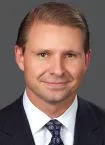Originally published May 22, 2009
Keywords: Class action, Proposition 64, Tobacco II Cases, California, Unfair Competition Law, standing, class representative, false advertising
Until California voters passed Proposition 64, anyone could sue on behalf of the "general public" using the unique representative action of California's Unfair Competition Law (UCL), the notorious Section 17200 of California's Business and Professions Code. Any "person," whether or not injured by the claimed "unlawful, unfair or fraudulent" business practice, could seek restitution and an injunction on behalf of everyone in the state who had been affected. In response to abuses of this procedure, California voters enacted Proposition 64, which limited private party standing to those who have "suffered injury in fact and ... lost money or property as a result of" the challenged practice, and required compliance with class certification procedures whenever a private party sought "relief on behalf of others."
On May 18, 2009, the California Supreme Court decided In re Tobacco II Cases, No. S147345, and limited the effect of Proposition 64 on UCL actions addressing allegedly "fraudulent" conduct such as false advertising. The court held that the standing requirements imposed by Proposition 64 apply only to the class representatives: that is, the named plaintiffs need not show that the absent class members also had standing. To establish standing to assert a misrepresentation claim under the UCL, a class representative must demonstrate actual reliance on the challenged statements. But the named plaintiff need not plead or prove with "an unrealistic degree of specificity that the plaintiff relied on particular advertisements or statements when the unfair practice is a fraudulent advertising campaign."
This decision is of interest to all companies conducting business in California in light of the prevalence of UCL claims and claims under the related false advertising law, which Proposition 64 amended with similar standing requirements. Actions under these statutes are popular with plaintiffs' counsel because of the nebulous liability standards and the availability of attorneys' fees under the fee-shifting provisions in California's private attorney general statute.
The complaint in Tobacco II alleged that tobacco industry defendants violated the UCL by conducting deceptive advertising campaigns and issuing misleading statements about the addictive nature of nicotine and the relationship between tobacco and disease. The trial court originally certified the case as a class action, then decertified the class after Proposition 64 became law. The trial court held that, "for standing purposes, a showing of causation is required as to each class member's injury in fact." The causation issue raised significant individualized questions such as whether each class member was exposed to the defendant's alleged false statements and whether each member purchased cigarettes "as a result" of the false statements. The intermediate court of appeal affirmed, agreeing that individual issues of exposure to, and reliance on, the allegedly deceptive statements predominated over common issues.
The California Supreme Court reversed.
First, the court held that Proposition 64 standing requirements apply only to the individual class representatives, not to the unnamed class members that the named plaintiffs seek to represent. The court concluded that neither the language nor the stated purpose of Proposition 64 "purports to alter accepted principles of class action procedure that treat the issue of standing as referring only to the class representative and not the absent class members."
The court also concluded that imposing "such a novel requirement" was not necessary to remedy the specific abuses at which Proposition 64 was directed — primarily, "unscrupulous lawyers who exploited the generous standing requirement of the UCL to file 'shakedown' suits to extort money from small businesses." Imposing a standing requirement on the absent class members, the court believed, "would undermine the efficacy of the UCL as a means of protecting consumer rights, because requiring all unnamed members of a class action to individually establish standing would effectively eliminate the class action lawsuit as a vehicle for the vindication of such rights." The court also found that, because Proposition 64 did not purport to change the substance of the UCL, UCL remedies jurisprudence at the time the initiative passed suggested that Proposition 64 was not intended to have any effect on unnamed class members.
Second, the court addressed the causation requirements for establishing standing to pursue a UCL class action. Declining to adopt a presumption of reliance, the court held that a representative plaintiff must demonstrate actual reliance on the challenged misrepresentation. The court concluded, however, that the named plaintiffs need not necessarily establish individualized reliance on specific misrepresentations that influenced their purchases, but limited that holding to the setting of an extensive and long-term advertising campaign that would make identification of particular communications "unrealistic." And the court also held that the availability of alternative information did not necessarily defeat a claim of reliance.
Three Justices dissented. They believed that the decision "turns class action law upside down": "[u]nder well-established class action rules, the putative class the named plaintiffs seek to represent may include only persons who could themselves bring similar UCL claims" on their own behalf, which they could do only if they met the statute's standing requirements. Furthermore, the permissive practice approved by the majority "invites the very kinds of mischief Proposition 64 was intended to curtail."
In re Tobacco II Cases is significant because it appears to reinstate in part the very "nonclass class action" that Proposition 64 had apparently abrogated. Plaintiffs are likely to contend that an injured individual may bring a UCL representative action on behalf of a class of uninjured private parties, and then obtain relief for persons who suffered no injury. But defendants will retain an effective response: the court passed only upon the narrow standing requirements at the class certification stage rather than the full class certification analysis. In addition, the discussion of the degree of reliance required of named plaintiffs is likely to generate substantial litigation.
The practical effects of the decision are likely to be known only after further development both in the California courts and in federal courts, to which many UCL class actions are now removed under the Class Action Fairness Act. Although the California Supreme Court repeatedly invoked the unique notion of the UCL representative action as one only partially altered by the standing and class certification requirements of Proposition 64, class actions in federal court are subject both to strict constitutional limits on standing and to more precise and developed class certification rules and jurisprudence.
Learn more about our Consumer Litigation & Class Actions, Supreme Court & Appellate, and Antitrust & Competition practices.
Visit us at www.mayerbrown.com.
Mayer Brown is a global legal services organization comprising legal practices that are separate entities ("Mayer Brown Practices"). The Mayer Brown Practices are: Mayer Brown LLP, a limited liability partnership established in the United States; Mayer Brown International LLP, a limited liability partnership incorporated in England and Wales; and JSM, a Hong Kong partnership, and its associated entities in Asia. The Mayer Brown Practices are known as Mayer Brown JSM in Asia.
This Mayer Brown article provides information and comments on legal issues and developments of interest. The foregoing is not a comprehensive treatment of the subject matter covered and is not intended to provide legal advice. Readers should seek specific legal advice before taking any action with respect to the matters discussed herein.
Copyright 2009. Mayer Brown LLP, Mayer Brown International LLP, and/or JSM. All rights reserved.


